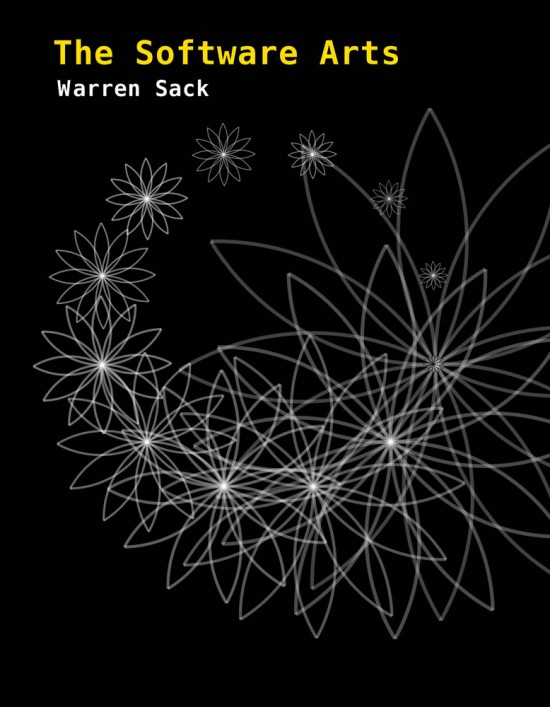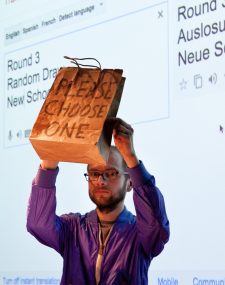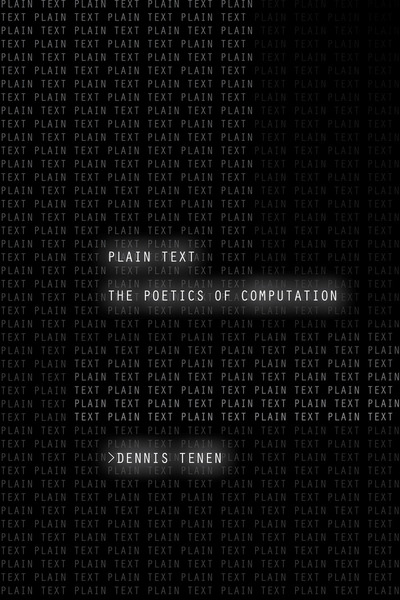Warren Sack: The Software Arts (2019)
Filed under book | Tags: · algorithm, art history, big data, computing, history of technology, language, logic, programming, software, software art, software studies, translation

“In The Software Arts, Warren Sack offers an alternative history of computing that places the arts at the very center of software’s evolution. Tracing the origins of software to eighteenth-century French encyclopedists’ step-by-step descriptions of how things were made in the workshops of artists and artisans, Sack shows that programming languages are the offspring of an effort to describe the mechanical arts in the language of the liberal arts.
Sack offers a reading of the texts of computing—code, algorithms, and technical papers—that emphasizes continuity between prose and programs. He translates concepts and categories from the liberal and mechanical arts—including logic, rhetoric, grammar, learning, algorithm, language, and simulation—into terms of computer science and then considers their further translation into popular culture, where they circulate as forms of digital life. He considers, among other topics, the “arithmetization” of knowledge that presaged digitization; today’s multitude of logics; the history of demonstration, from deduction to newer forms of persuasion; and the post-Chomsky absence of meaning in grammar. With The Software Arts, Sack invites artists and humanists to see how their ideas are at the root of software and invites computer scientists to envision themselves as artists and humanists.”
Publisher MIT Press, 2019
ISBN 9780262039703, 0262039702
xx+375 pages
PDF (19 MB)
Comment (0)Amodern, 8: Translation-Machination (2018)
Filed under journal | Tags: · language, machine, machine learning, media, technique, translation

“Amodern 8 explores the contexts and implications of translation as mechanism, media, technique, and transmission. Our tethering of “translation” to “machination” marks our intention to move beyond the habit of situating MT and computer-generated language in the familiar crisis poses of fakery, treason, and inauthenticity. Rather than regarding the machine as marking the limits of translation – an assumption that risks walling off translation practice from media and communication studies concerns, while still absorbing its products – our aim is to continue to investigate the possibilities and configurations of translation as machined, and translation as machining meaning, historically and in the contemporary moment.”
With contributions by Rita Raley, Otso Huopaniemi, John Cayley, Christine Mitchell, Tiffany Chan, Mara Mills, Jentery Sayers, Avery Slater, Quinn DuPont, Andrew Pilsch, Nick Montfort, Jane Birkin, Karin Littau, and Joe Milutis.
Edited by Christine Mitchell and Rita Raley
Publisher Concordia University and Lakehead University, January 2018
Creative Commons Attribution-Non Commercial 3.0 Unported License
Dennis Tenen: Plain Text: The Poetics of Computation (2017)
Filed under book | Tags: · book, computation, human-computer interaction, language, literary theory, literature, media, media theory, poetics, software, text, theory, translation

“This book challenges the ways we read, write, store, and retrieve information in the digital age. Computers—from electronic books to smart phones—play an active role in our social lives. Our technological choices thus entail theoretical and political commitments. Dennis Tenen takes up today’s strange enmeshing of humans, texts, and machines to argue that our most ingrained intuitions about texts are profoundly alienated from the physical contexts of their intellectual production. Drawing on a range of primary sources from both literary theory and software engineering, he makes a case for a more transparent practice of human–computer interaction. Plain Text is thus a rallying call, a frame of mind as much as a file format. It reminds us, ultimately, that our devices also encode specific modes of governance and control that must remain available to interpretation.”
Publisher Stanford University Press, 2017
ISBN 9781503601802, 1503601803
x+268 pages
Reviews: N. Katherine Hayles (Critical Inquiry, 2017), Jan Baetens (Leonardo, 2017), James Edward Draney (LARB, 2017), Maisie Ridgway (Textual Practice, 2018).
Comments (2)
